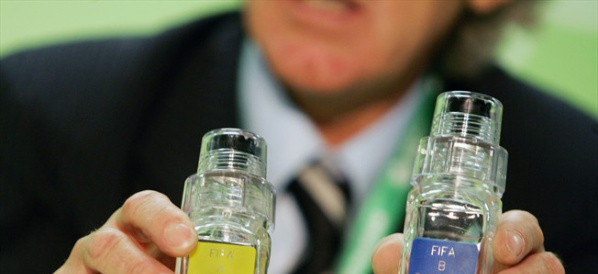 9 Terms
9 TermsHome > Terms > English (EN) > credit and credit cards
credit and credit cards
According to the Federal Reserve Board, outstanding consumer credit has soared from $6,577.8 million in January 1943 to $1,370,880 million in October 1999. Much of this increase has come in revolving credit, a concept that appears in Federal Reserve statistics as of 1968, as major associations like Visa and Mastercard consolidated. By the late 1990s, over 2 billion credit cards circulated in the United States—roughly nine per person. Credit has facilitated consumerism (and debt) as hallmarks and dangers of the middle class; credit cards have become badges of identity as well as status. Yet, this global revolution has also excluded the poor in important ways.
Earlier credit arrangements incorporated divisions of wealth and class. Department stores, clubs and other services arranged billing or charge accounts for the bourgeoisie.
American Express, founded in 1850, has carved out a niche based on travel, corporate money management and financial networking for an elite clientele, competing with Diner’s Club and Carte Blanche. American Express charges a user’s fee for this service and demands complete monthly payments; it also charges merchants more.
By contrast, those of limited means have depended on personalized arrangements which have sometimes kept them locked into debt with merchants or employers. Others have relied on layaways (planned pre-payment to gain necessary goods), as well as savings and denial. Through yet another scheme, rental-purchase, those without credit pay many times the value of goods as they use them before possessing them outright. In emergencies not covered by public assistance, the poor turn to families or fall into the hands of predatory loan sharks who compound high interests on a weekly or monthly basis. Credit unions and similar community ventures have sought to establish more concrete savings and credit plans for workers and low-income groups.
Middle-class credit, by contrast, took shape in particular through consortia of banks that facilitated payment through interconnecting branches in major cities. Franklin National Bank offered such a card in 1951, replacing experimental bank script. By 1966 the Interbank Card Association emerged, establishing global ties for what would become Mastercard within a few years. Visa emerged from the Bank of American Bankamericard (1958), consolidating national and international ties in the early 1970s and taking on its current name in 1976. Together, these cards now account for 75 percent of the American market; 50 percent for Visa, which issued 298 million cards in the US in 1998. They are also hotly marketed at people at the beginning of financial maturity: 70 percent of college undergraduates have at least one, while special offers (usually reduced initial financing) are mailed out weekly to target demographics, and televised advertising underscores that “for everything else, there is Mastercard.” Citizens, in turn, use these cards to establish credit ratings to validate future borrowing.
Since banks issuing one or both cards do not handle other cards, this Visa-Mastercard monopoly has been attacked by American Express as well as by the smaller Discovery card, originally founded and backed by merchandiser Sears Roebuck. In fact, Visa and Mastercard have shown flexibility in organizing co-branding arrangements with airlines, vendors and even charities that account for 20,000 different kinds of credit cards available. The message of all, however, is the same: consumerism is part of American identity and credit cards, like driver’s licenses, are routinely solicited for identification as well as necessities for such practices as car rental.
Unlike American Express, Visa and Mastercard charge less and may have no user’s fee; instead, 75 percent of their profits come from charges on balances left unpaid, which may reach 26 percent annually The weight of this debt has contributed to growing bankruptcies and emphasized the alternative of debit cards or check cards which draw money directly from accounts without exceeding available limits or charging interest. For those who have lost their credit rating, new markets for credit counseling, debt consolidation (often borrowing against house equity) and secured credit cards, which allow spending up to a fixed-deposit limit, all offer routes into American consumer debt.
Not all observers are sanguine about the ease or implications of this transformation of an American way of life. Critics have frequently raised questions about privacy and control of personal knowledge, especially as credit cards mesh with the ubiquities of ecommerce and increasingly smart cards are promoted. Yet, in this, it is also clear that the US is not alone: Visa has issued 800 million cards worldwide and touts itself as a universal currency where the total expenses for 1998 products and services reached $1,400,000 million.
- Part of Speech: noun
- Synonym(s):
- Blossary:
- Industry/Domain: Culture
- Category: American culture
- Company: Routledge
- Product:
- Acronym-Abbreviation:
Other Languages:
Member comments
Terms in the News
Billy Morgan
Sports; Snowboarding
The British snowboarder Billy Morgan has landed the sport’s first ever 1800 quadruple cork. The rider, who represented Great Britain in the 2014 Winter Olympics in Sochi, was in Livigno, Italy, when he achieved the man-oeuvre. It involves flipping four times, while body also spins with five complete rotations on a sideways or downward-facing axis. The trick ...
Marzieh Afkham
Broadcasting & receiving; News
Marzieh Afkham, who is the country’s first foreign ministry spokeswoman, will head a mission in east Asia, the state news agency reported. It is not clear to which country she will be posted as her appointment has yet to be announced officially. Afkham will only be the second female ambassador Iran has had. Under the last shah’s rule, Mehrangiz Dolatshahi, a ...
Weekly Packet
Language; Online services; Slang; Internet
Weekly Packet or "Paquete Semanal" as it is known in Cuba is a term used by Cubans to describe the information that is gathered from the internet outside of Cuba and saved onto hard drives to be transported into Cuba itself. Weekly Packets are then sold to Cuban's without internet access, allowing them to obtain information just days - and sometimes hours - after it ...
Asian Infrastructure Investment Bank (AIIB)
Banking; Investment banking
The Asian Infrastructure Investment Bank (AIIB) is an international financial institution established to address the need in Asia for infrastructure development. According to the Asian Development Bank, Asia needs $800 billion each year for roads, ports, power plants or other infrastructure projects before 2020. Originally proposed by China in 2013, a signing ...
Spartan
Online services; Internet
Spartan is the codename given to the new Microsoft Windows 10 browser that will replace Microsoft Windows Internet Explorer. The new browser will be built from the ground up and disregard any code from the IE platform. It has a new rendering engine that is built to be compatible with how the web is written today. The name Spartan is named after the ...
Featured Terms
fifa doping
IFA has a clear vision: to keep football free of doping. It is FIFA's duty to protect players from harm and ensure that footballers can compete on an ...
Contributor
Featured blossaries
rufaro9102
0
Terms
41
Blossaries
4
Followers
The Greatest Black Female Athletes Of All-Time
 5 Terms
5 Terms
Browers Terms By Category
- Mapping science(4042)
- Soil science(1654)
- Physical oceanography(1561)
- Geology(1407)
- Seismology(488)
- Remote sensing(446)
Earth science(10026) Terms
- American culture(1308)
- Popular culture(211)
- General culture(150)
- People(80)
Culture(1749) Terms
- General packaging(1147)
- Bag in box(76)
Packaging(1223) Terms
- Biochemistry(4818)
- Molecular biology(4701)
- Microbiology(1476)
- Ecology(1425)
- Toxicology(1415)
- Cell biology(1236)
Biology(22133) Terms
- Pesticides(2181)
- Organic fertilizers(10)
- Potassium fertilizers(8)
- Herbicides(5)
- Fungicides(1)
- Insecticides(1)



